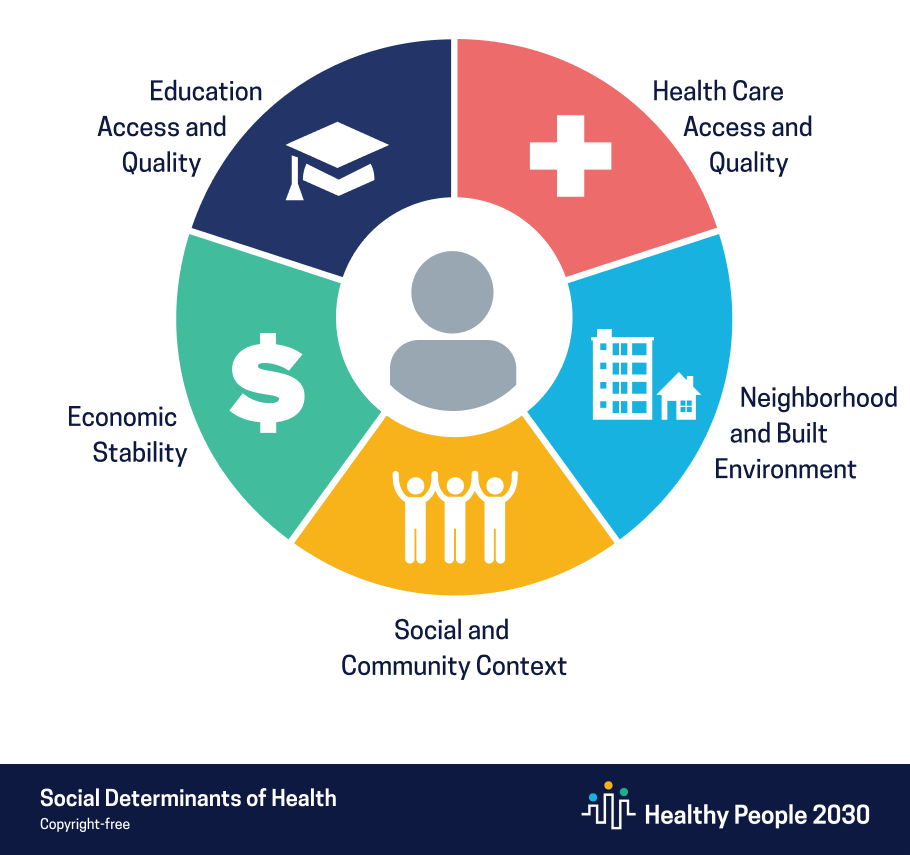Our Role
To support the Oregon Health Authority's goal to eliminate health inequities by 2030, the Social Determinants of Health team strives to be equity in action, in service to Oregon communities. The team shares these foundational goals:
- Engage Oregon communities through shared leadership and decision-making to address systemic and institutional health inequities.
- Increase residential treatment facility capacity and supportive housing services to improve housing stability, access to appropriate care, and better overall health and wellbeing.
The team works with community partners to identify funding opportunities that help communities throughout Oregon lead local projects to improve the social determinants of health.
What Are the Social Determinants of Health?
 Retrieved April 26, 2022, from
the Healthy People 2030 website, U.S. Department of Health and Human Services, Office of Disease Prevention and Health Promotion.
Retrieved April 26, 2022, from
the Healthy People 2030 website, U.S. Department of Health and Human Services, Office of Disease Prevention and Health Promotion.
According to Healthy People 2030, the social determinants of health (SDOH) are the conditions in the environment that affect our overall health and quality of life.
There are five key areas of SDOH: